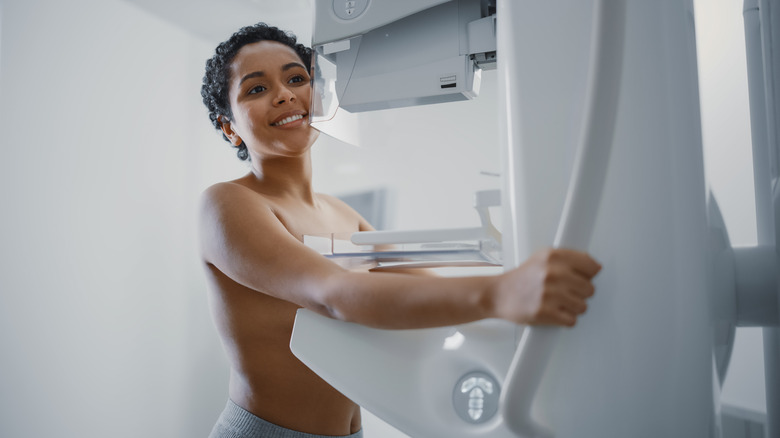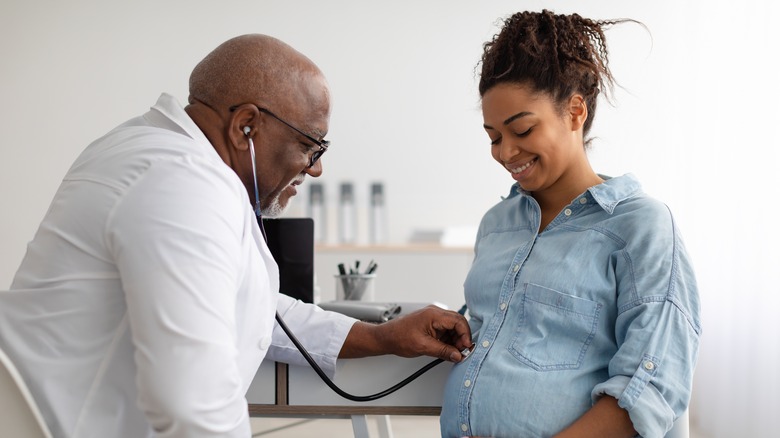Is It Safe To Get An X-Ray While Pregnant?
X-rays are electromagnetic waves, a type of radiation that, when fired at your body, allows doctors to create images of the inside of your body in black and white, showing bones, fat, and other soft tissues, according to MedlinePlus. X-rays are useful for finding many different problems, including cancers, tumors, blocked blood vessels, fractures, tooth decay, and even swallowed items, according to Healthline.
However, X-rays are a type of radiation and this may scare some people. Yes, radiation can potentially damage DNA and lead to cancer at high doses, according to the National Cancer Institute. However, there is currently no definitive evidence to prove that the small doses used in X-rays increase the risk of cancer, according to the University of California's Department of Radiology. While it is possible that they may increase the risk of cancer by a very small amount, it's generally understood that the benefits of getting an X-ray greatly outweigh any small risk.
Still, this may not help with your fears, especially if you're pregnant. Anything that has the slightest risk of harming your child may seem not worth it. You may wonder if it is safe to get an X-ray while pregnant.
The possibility of X-rays harming an unborn child is very small
Generally, an expecting mother won't need to get an X-ray for diagnostic purposes related to the unborn child. However, it's possible that you may need an X-ray for other reasons, such as an injury.
The radiation from a large number of X-rays, particularly to the abdominal area, can potentially raise the risk of birth defects and cancer, according to WebMD. However, getting one or even a few X-rays is unlikely to harm your baby. X-ray exams that are done on the limbs, head, teeth, or chest won't expose your uterus to radiation, especially if you're wearing a lead apron, according to Mayo Clinic.
In general, receiving an X-ray exam during pregnancy poses a very small risk to the unborn child and is considered safe. However, if you're still concerned, there are steps you can take to mitigate the risk. Always let your doctor know if you are or may be pregnant. Feel free to ask for a lead apron to cover your abdomen. You can also ask if there are other types of scans, such as ultrasound or an MRI, that your doctor may deem to be safer, according to the University of Rochester Medical Center (URMC).
Finally, you can schedule the X-ray exam for after the baby is born if the problem is something that can wait. If it can't wait, though, the URMC warns that the risks of not getting a necessary X-ray could outweigh any risks of getting it.


